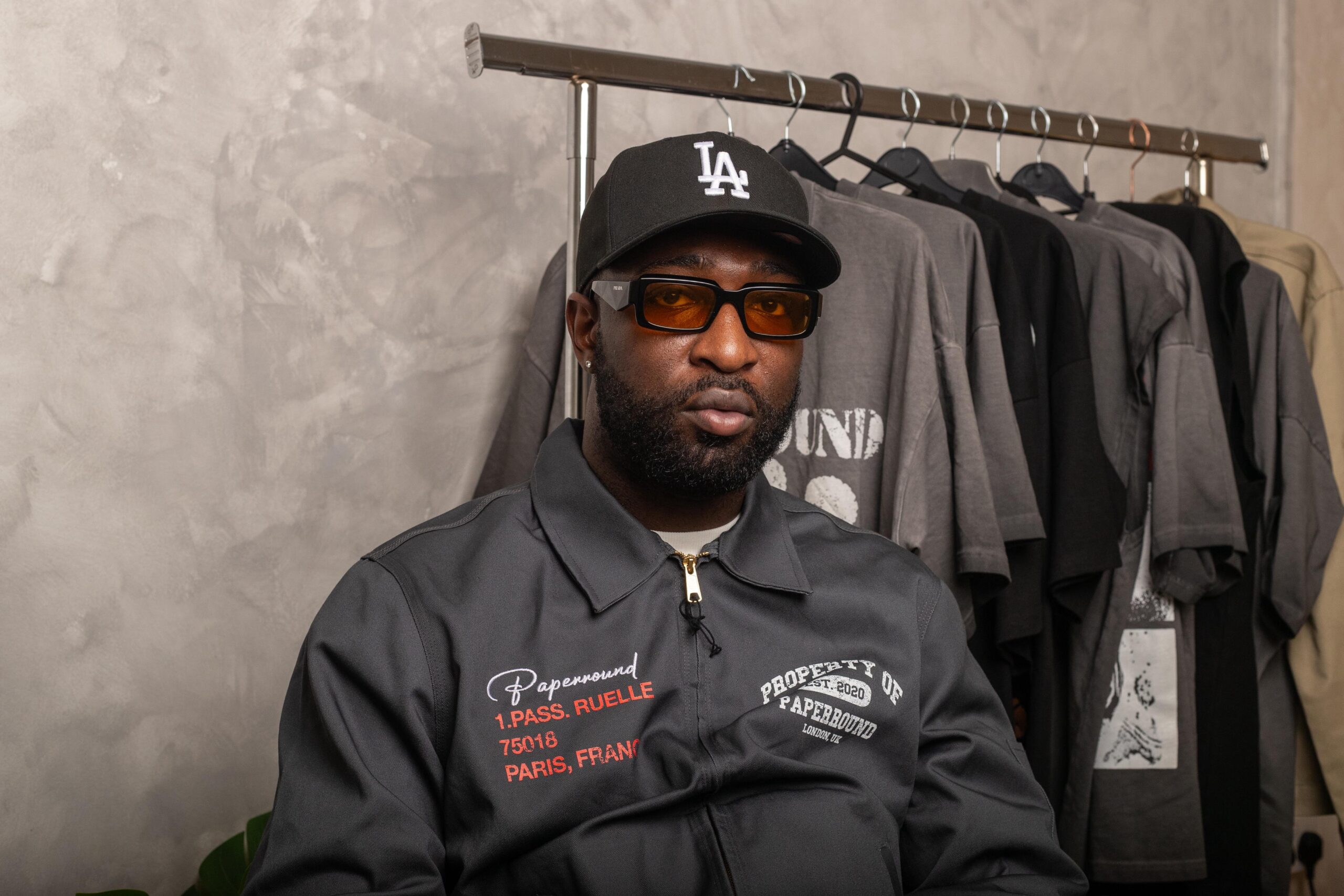
Paperround’s David Cole on Culture, Craft, and Carving His Own Lane
- Nada Armanious
- Fashion
From experimenting with blanks and Photoshop designs at home to seeing strangers wearing his pieces during Paris Fashion Week, David Cole’s journey with Paperround is a story of vision, persistence, and culture-driven creativity. Rooted in his own frustrations with fashion, inspired by his Nigerian heritage, and shaped by a belief in inclusivity, Cole has built Paperround into a brand he describes as “streetwearlux”, streetwear with the quality and feel of luxury.
With retail presence already established in the US and London, a growing community built through pop-ups and in-person activations, and ambitious plans to expand into Europe, the Middle East, and beyond, Paperround is carving out its own lane in a saturated industry. In this interview, David Cole shares the inspirations behind the brand, his approach to slow fashion and sustainability, the cultural stories woven into his collections, and the lessons he’s learned as a founder navigating the global fashion stage.
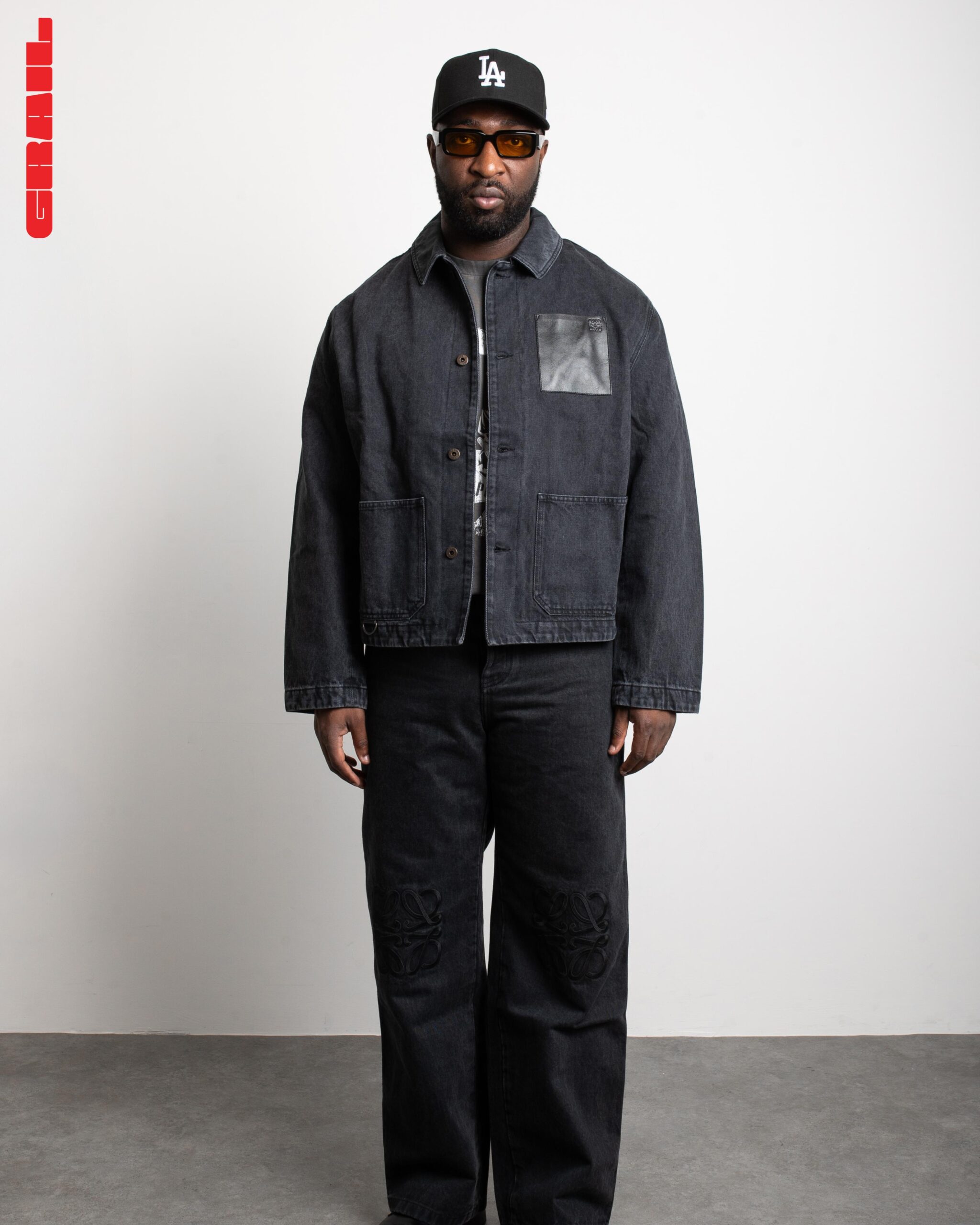
Photographed by Sion Sylvester
What inspired you to launch Paperround, and how did you first conceive the idea?
I was inspired to launch Paperround through my own experiences with fashion. As someone who has always loved shopping and discovering new brands, I often found myself frustrated that I couldn’t find garments with the exact silhouettes and designs I had in mind. At the time, I felt uninspired by what was available in the market and didn’t agree with the value being offered. Many of the “popular” brands seemed overpriced compared to the quality they delivered.
That led me to start experimenting. I began working with blanks tailored to the measurements I preferred, and I even downloaded Adobe Photoshop to play around with logos and basic designs. I’ll admit I wasn’t the best at graphic design — and now I leave that to the experts — but those early attempts gave me a solid understanding of the creative process involved in design. Today, I have a team that helps bring my ideas to life, but those beginnings were important in shaping how I think about fashion.
My inspiration also comes from my culture and the life around me. I grew up in a household full of women who were passionate about cut-and-sew, alterations, and tailoring, which gave me a natural appreciation for craftsmanship.
As for the name, it comes from the idea of a “Paper round” — starting small, working hard, and finding stories in the streets and environments around you. I like to think each of my designs tells its own unique story in the same way.
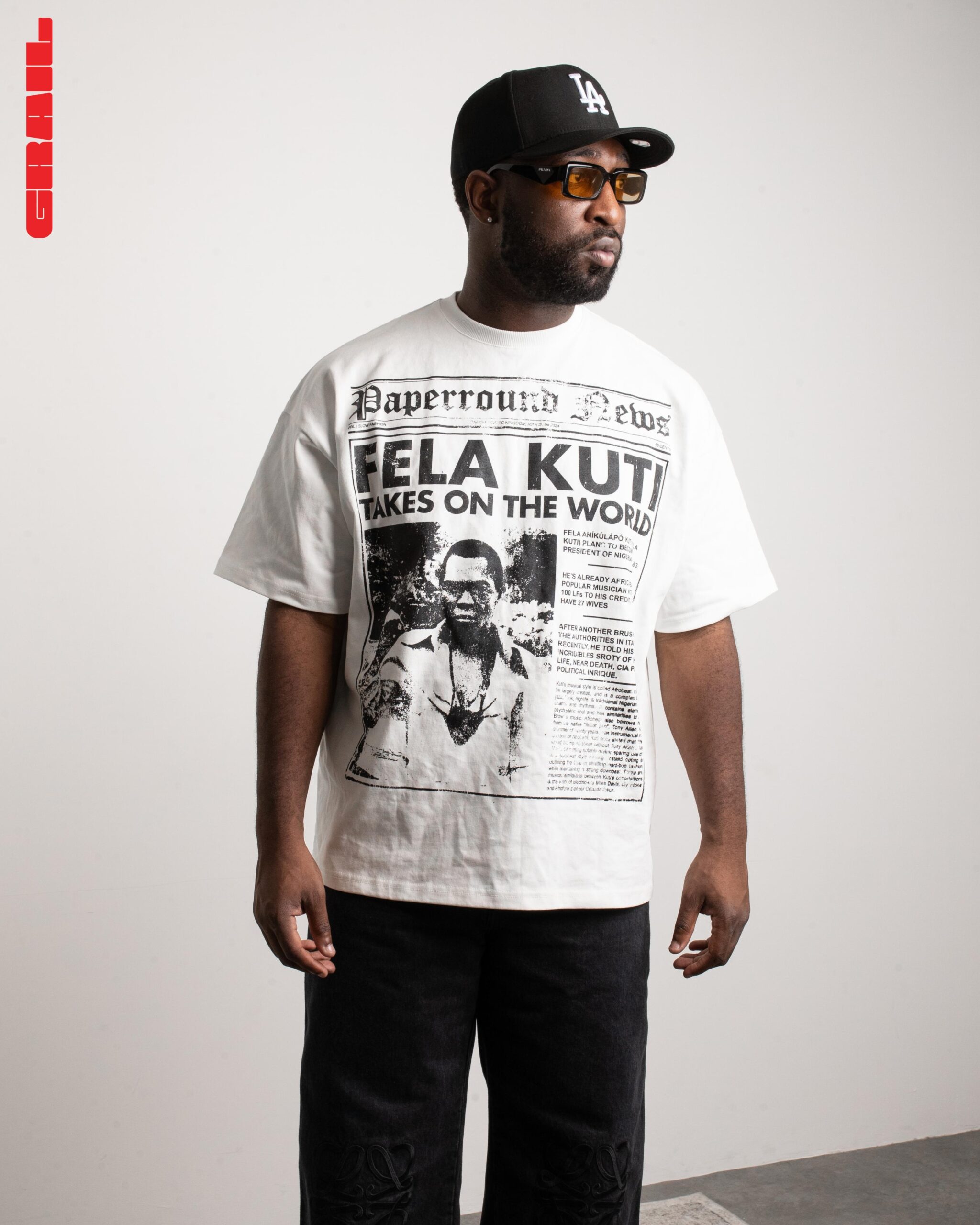
Photographed by Sion Sylvester
How would you describe Paperround’s identity?
I would describe the brand as “streetwearlux.” I’m not sure that genre formally exists, but it captures what we do. By design and utility, it’s streetwear, but with the quality and feel of luxury. We’ve invested a lot of time and resources into sourcing the best material blends to ensure a premium, made-to-last feel.
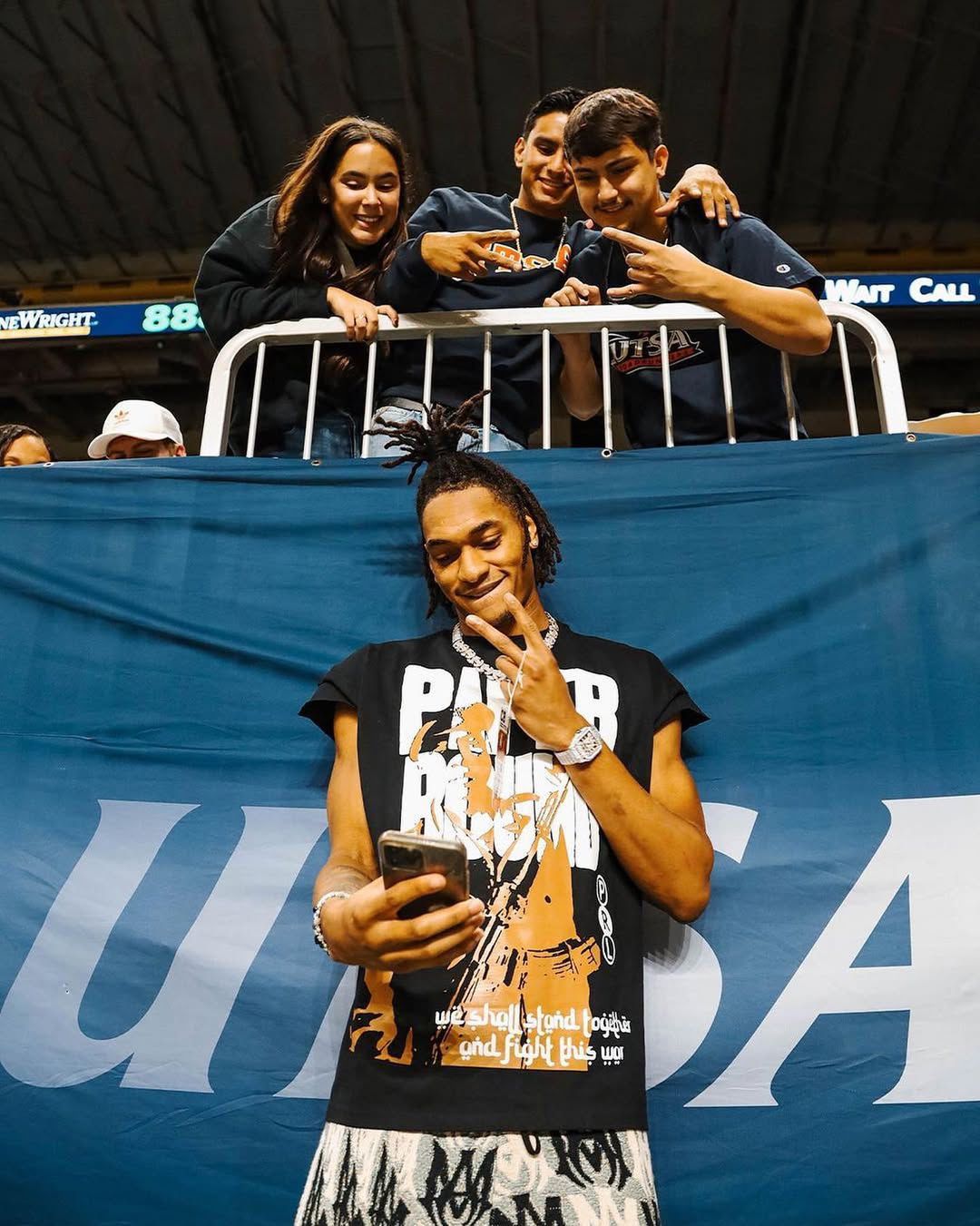
Devin Vassell in Paperround
Who do you see as Paperround’s core customer, and how do you cultivate a connection with them through your aesthetics or messaging?
I don’t like to put restrictions on Paperround’s core customers because my aim has always been inclusivity. I’ve seen people of all ages and backgrounds look great in a Paperround fit, and that’s something I take pride in. Over the past few years, we’ve built a strong connection with our community by increasing engagement both online and in person. We’ve hosted pop-ups in London twice as well as in Paris, which were incredible opportunities to meet our customers face-to-face. We’ve also sponsored parties in London and taken part in multiple trade shows.
I believe these in-person moments are what truly help us stand out. They don’t just strengthen our brand, they form its backbone. Looking ahead, I have more events planned for 2025 and 2026 across Europe and the US, continuing to grow that direct connection with our community.
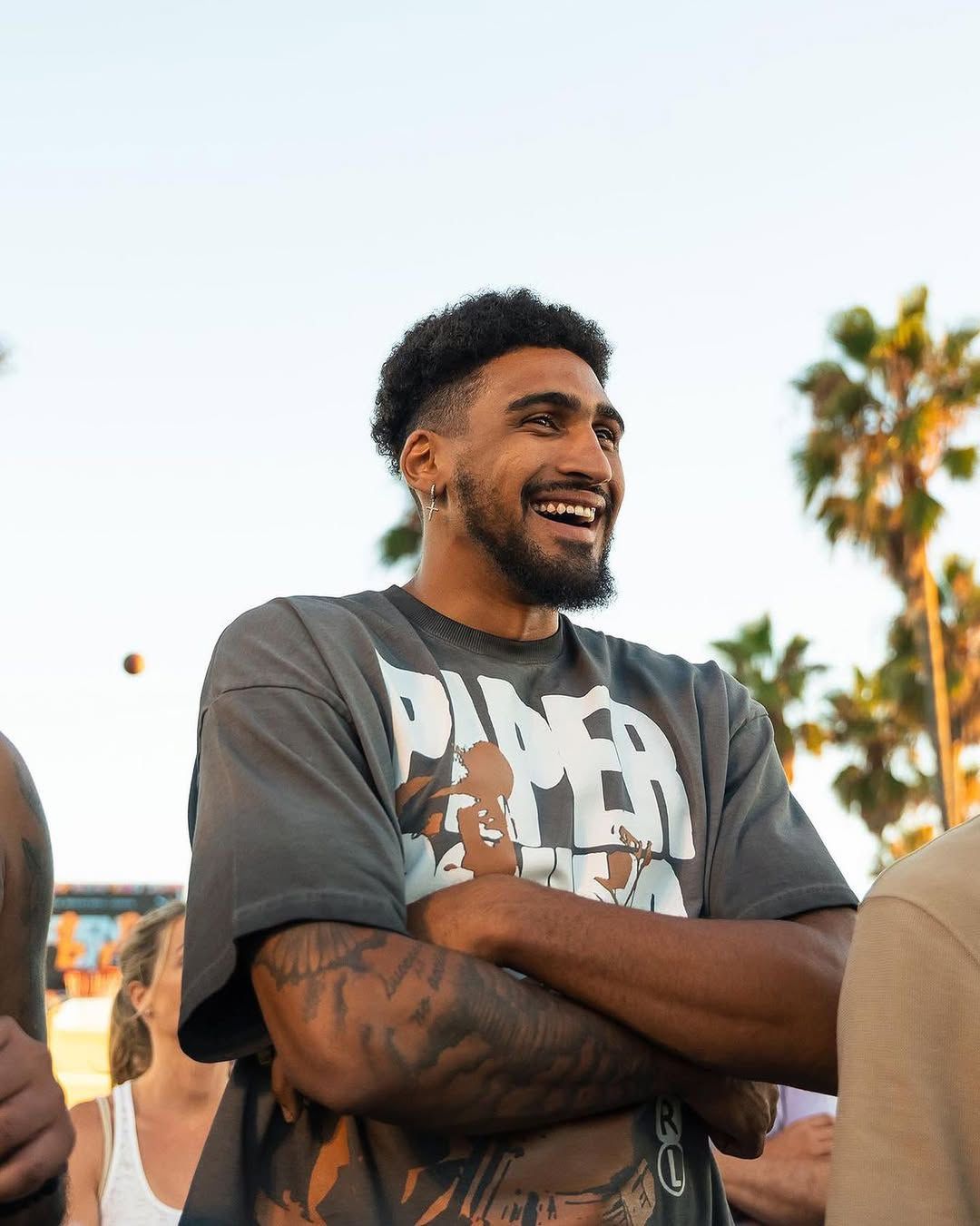
How do you envision the brand evolving over the next 2 to 5 years? Are there plans for expansion, new offerings, or partnerships?
We want to consolidate our presence in our core markets while expanding further into continental Europe and the Middle East. So far, we’ve been fortunate to have retail presence in over 40 stores across the US through wholesale, as well as a handful in London, but the next step is establishing a stronger foothold in Europe. The Middle East is also a key goal for us. We’ve seen strong interest from customers there, especially those who shop our retail partners in London while on vacation, so I’m confident the brand would perform well in the region. It’s an exciting market with fast-growing hubs and a culture that deeply celebrates fashion and luxury.
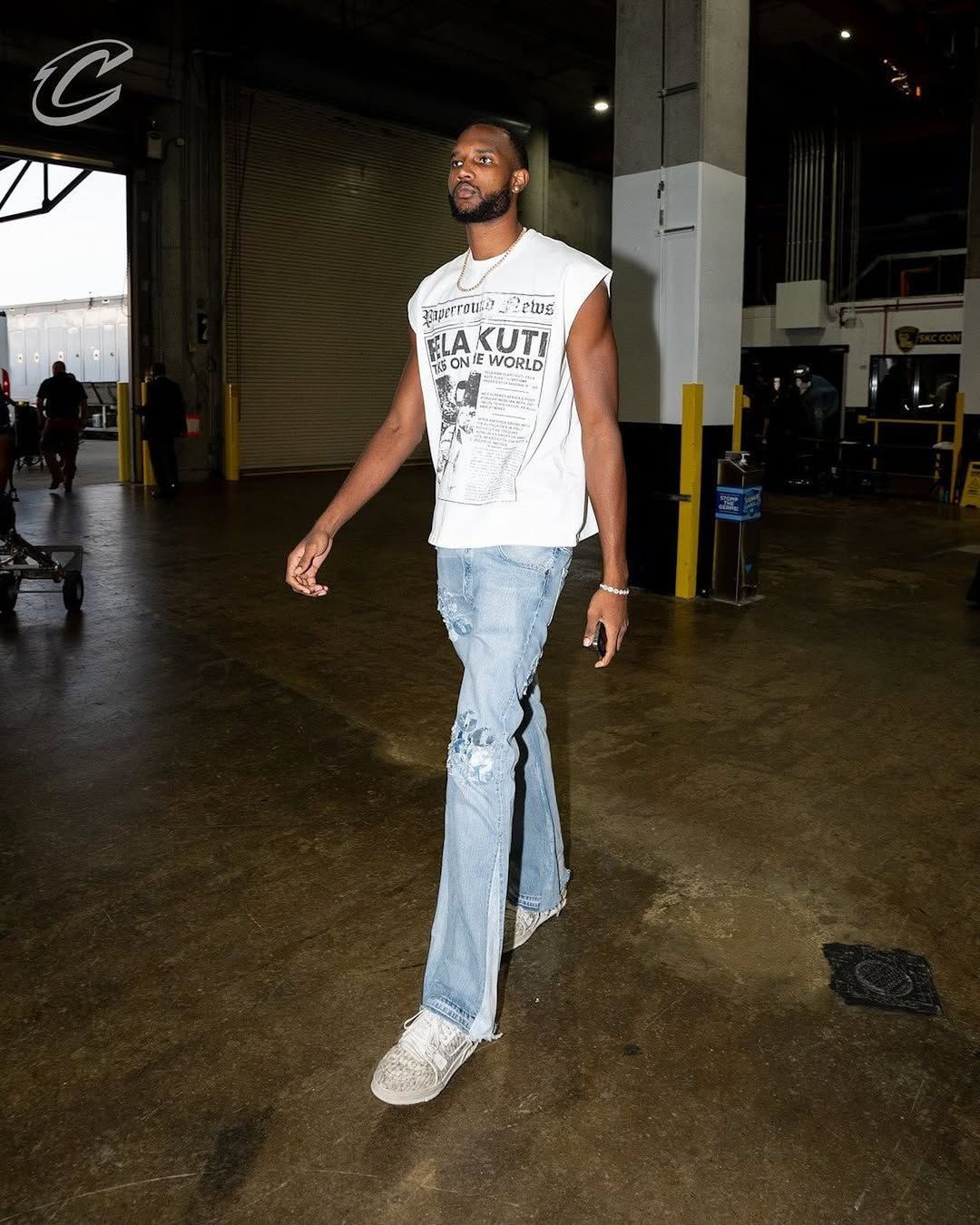
Evan Mobley in Paperround
Could you unpack what “slow fashion” means to you, and how sustainability plays a role in your design and production choices?
Slow fashion is about taking a more thoughtful approach to clothing. It’s choosing pieces that are higher quality, made sustainably, and produced ethically. It stands in contrast to fast fashion, which focuses on producing cheap clothes at speed. Our goal is to create garments that last a lifetime, which is why we invest heavily in sustainable, high-quality materials.
We’re also very aware of the impact that overproduction and overconsumption can have on the environment, and we want the brand to contribute positively to society by doing things differently.
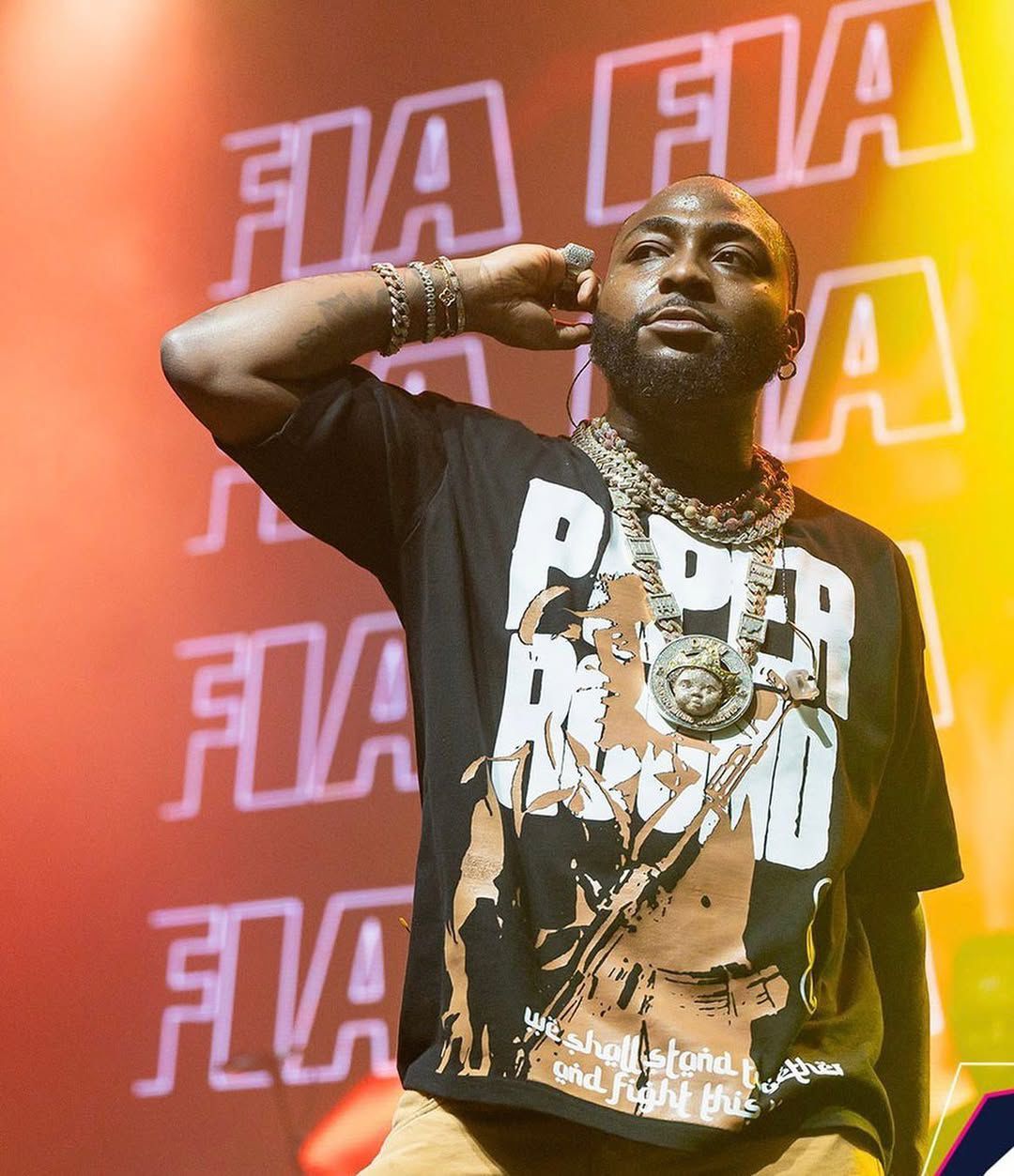
Davido in Paperround
Designs like “Fela Kuti” suggest cultural or artistic influences. What stories or inspirations are woven into these collections?
Being of Nigerian heritage and growing up in a household where my mum would wake us up on Saturday mornings with Fela blasting at full volume, I always knew I wanted to immortalize him on a piece. Fela was one of the world’s first true rockstars, and the fact that he was Nigerian makes it even more meaningful to me.
His creativity and the way he expressed himself were a huge source of inspiration — I’d even go as far as saying he paved the way for today’s biggest African stars like Burna Boy, Davido, Rema, Asake, Wizkid, and so many others to express themselves freely. Telling his story through design was something I definitely wanted to do, and it’s proven to be one of our highest-grossing items.
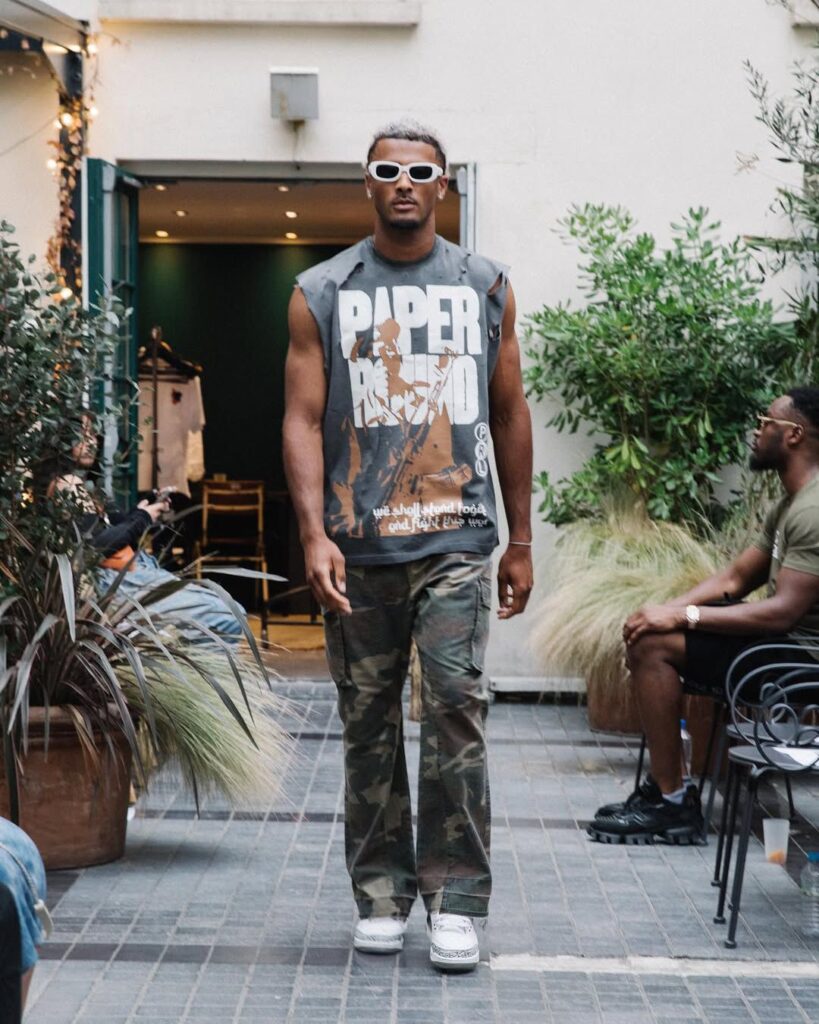
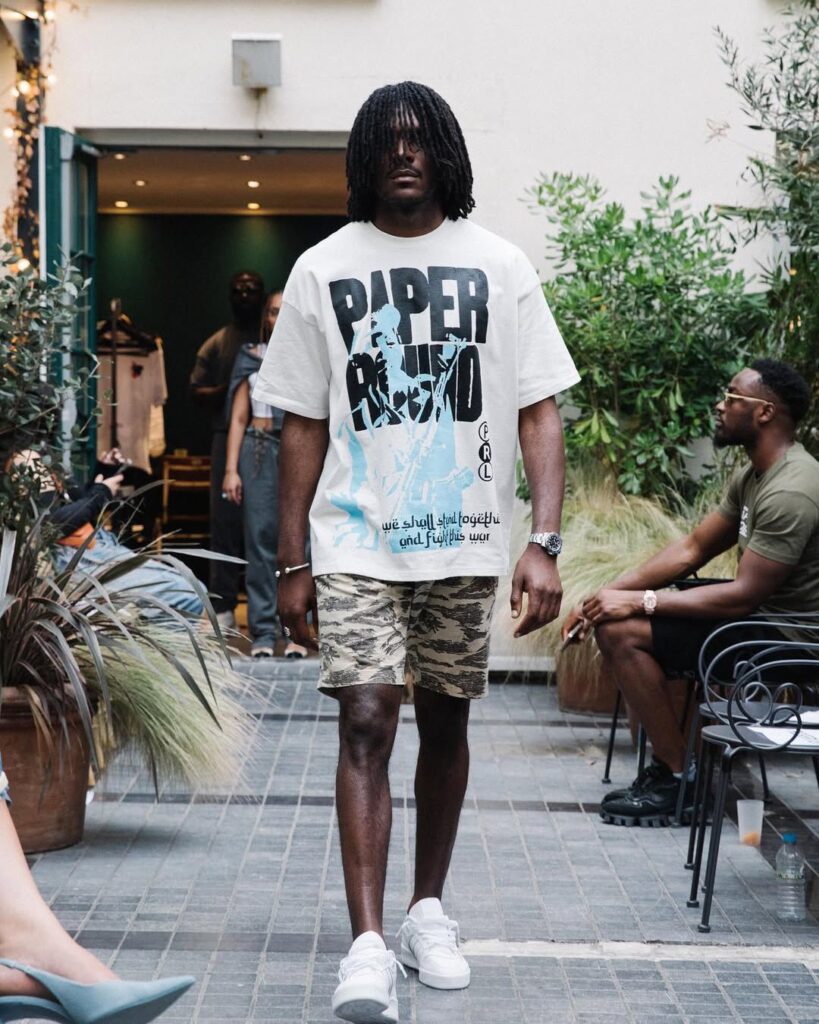
You took Paperround to a pop-up at Paris Fashion Week with Maison Guava. What meant the most to you about this experience?
Our first international pop-up in Paris took place during an incredibly busy fashion week, with so many events happening at the same time. The successful turnout gave me a lot of confidence and belief in what we’re building. I’ve always been a positive and confident person, but I’d be lying if I said I didn’t wonder at the back of my mind, “What if nobody shows up?” Doing a pop-up in Paris felt very different from London, where I can always rely on friends and family to come out and support. In Paris, that safety net wasn’t there — so to have such a busy day, with strong sales and meaningful in-person engagement, felt like nothing short of a huge success. It showed me the power of reaching beyond our home market, and it’s something I’d love to continue doing at every Paris Fashion Week if possible.
One of the most surreal moments was being out in restaurants and bars during Paris Fashion Week and seeing people I didn’t know wearing the brand. Personally, I think that’s one of the best feelings for any brand owner. Every night I was out, I spotted at least a few people in our pieces, and that kind of positive reinforcement meant a lot to me.
Looking ahead, I’d love to take the same energy to New York Fashion Week and Milan in the near future.
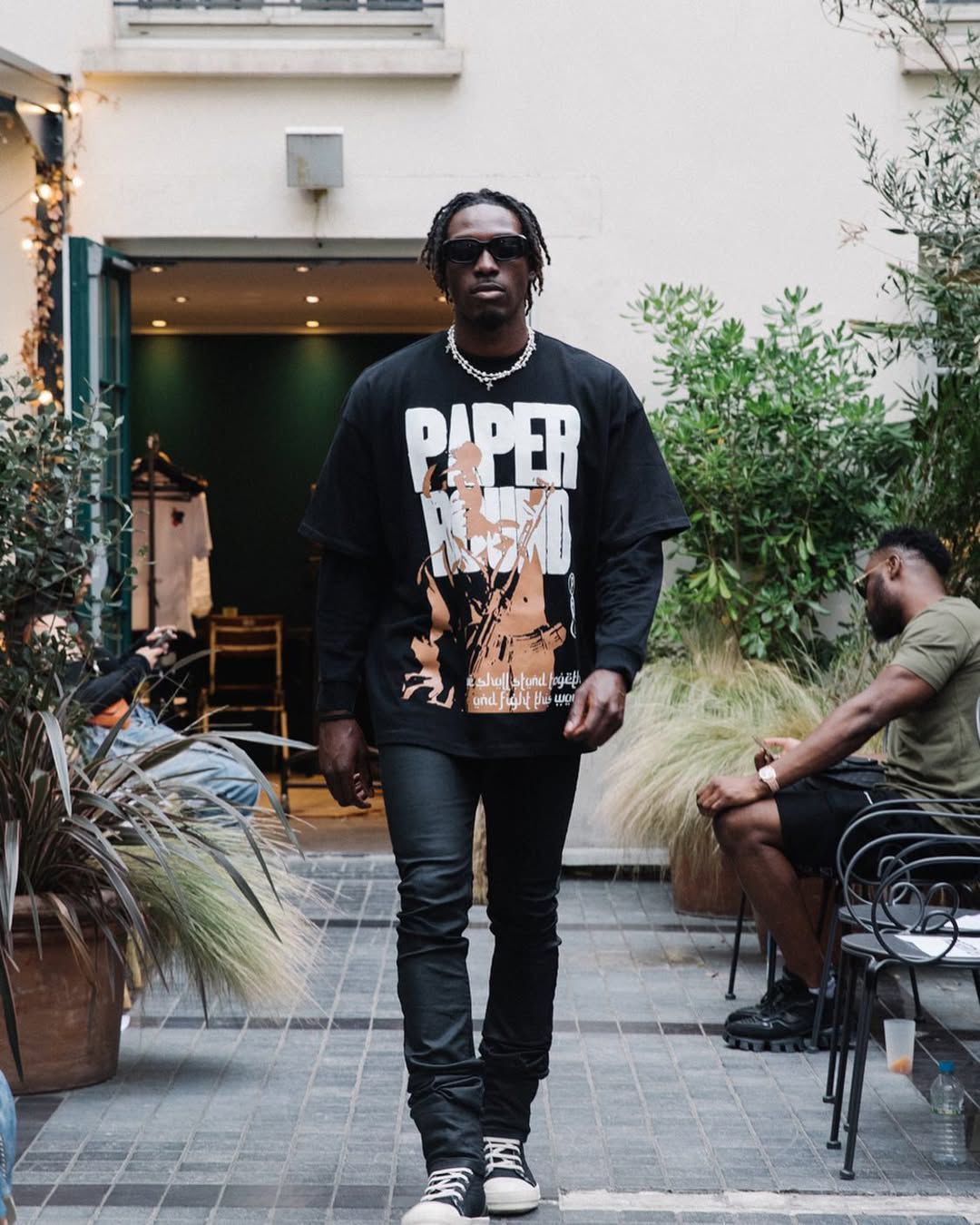
What important lessons have you learned since founding Paperround, and what advice would you offer to aspiring entrepreneurs starting their own brand?
I’ve learned to take the highs with the lows, not getting carried away when things are going well, and not getting too down when they’re slower. There’s no single route to success, so it’s important to run your own race and remember that success looks different for every entrepreneur. In such a saturated industry, comparison is easy, but tunnel vision and focus go a long way.
My advice to new entrepreneurs is to build a team of like-minded people with the same drive and purpose as early as possible. This past year, officially building a team of four business partners has taken the brand to a new level. I’d also encourage stepping outside your comfort zone. For me, that meant being more present on social media — something I’d always avoided — but I realized people buy into the brand owner as much as the brand itself.
